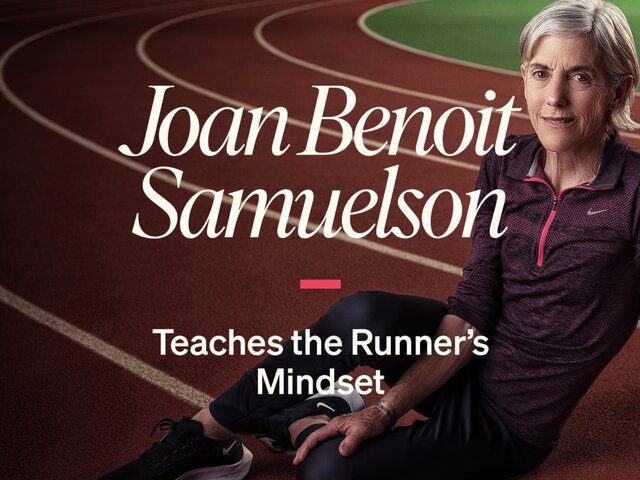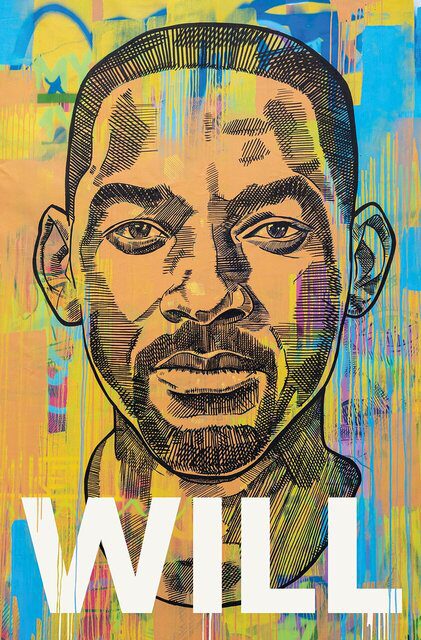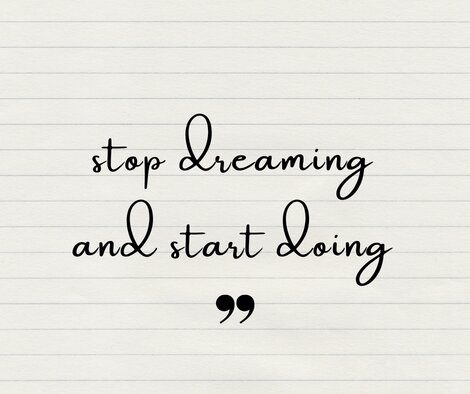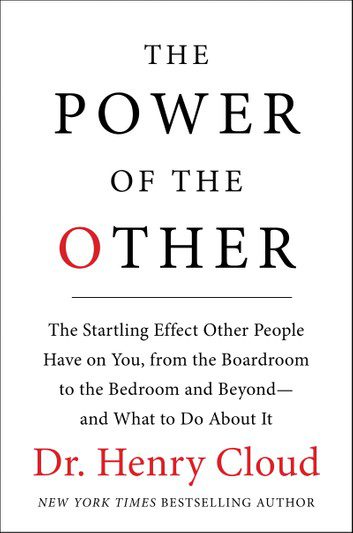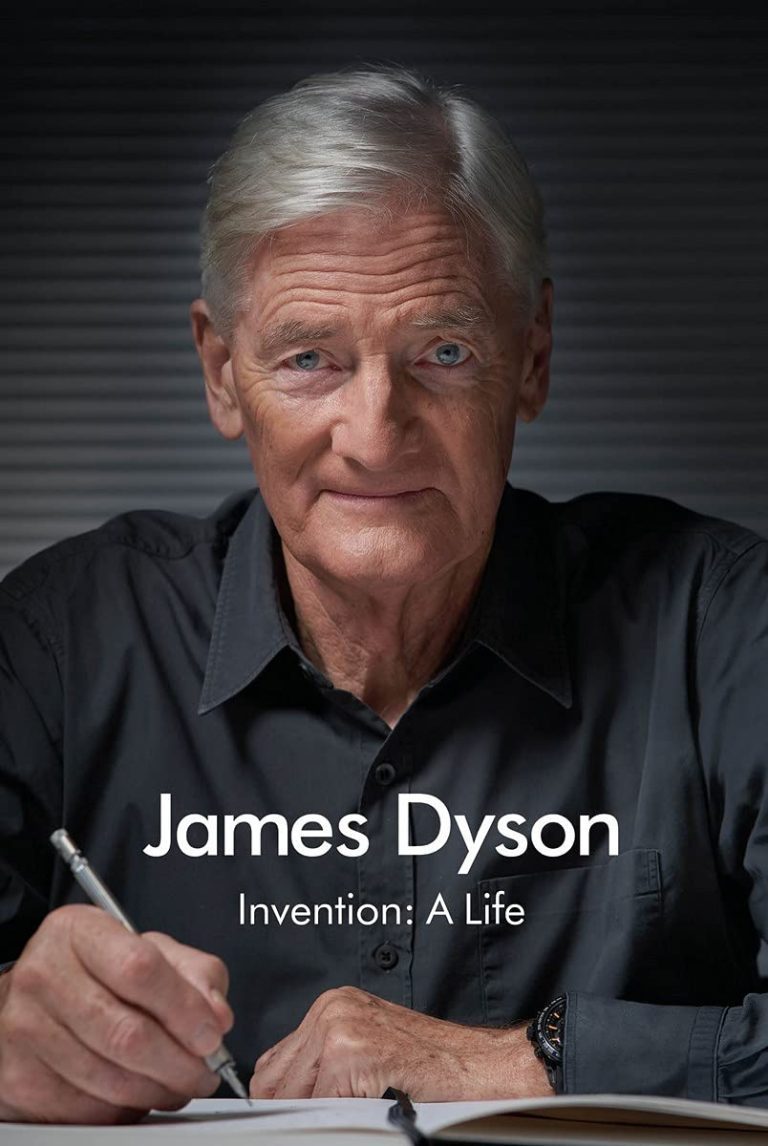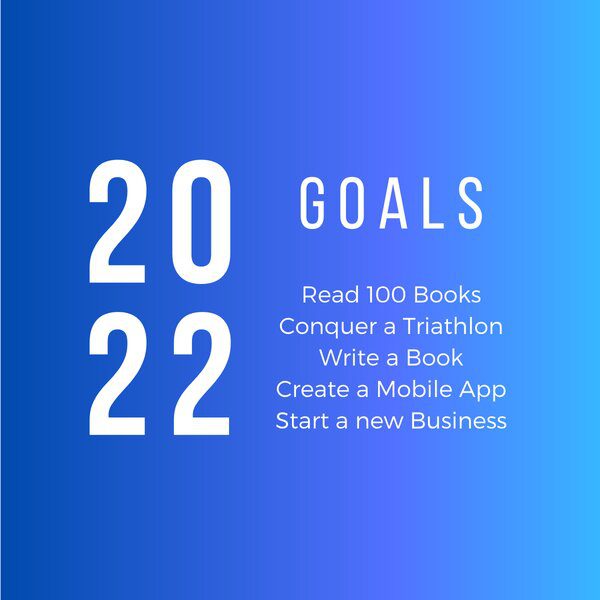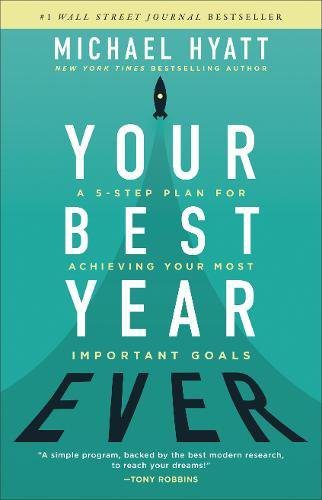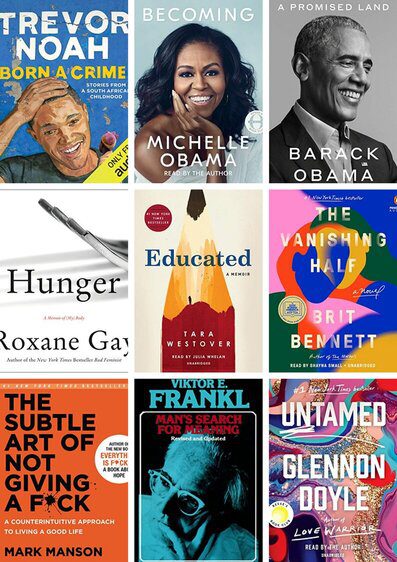The hardest part of starting anything worthwhile is the start. When you start, the universe conspire to make your dreams come true. You don’t have to be great to start but you have to start to be great. We all have greatness in us and we need to initiate, start, execute and do to become great. Unseen forces conspires to help you get what you want but you have to consistently show up day in day out.
We can’t run anybody else’s race except our own.
Long-distance legend Joan Benoit Samuelson teaches her personal approach to running so you can go further in running and in life. The record-breaking, Olympic gold medal-winning runner’s career is a study in listening to your body, channeling your passion into goals, and overcoming setbacks with resilience. Winner of the very first women’s Olympic marathon, Joan Benoit Samuelson has spent her life breaking records and paving the way for female runners around the world. Now she’s teaching her personal philosophy and approach to running.
Oprah Winfrey referred to Will Smith’s autobiography as the “best memoir she’s ever read” in her November 2021 “The Oprah Conversation” interview with actor Will Smith. In Will, American actor Will Smith takes the reader on a journey of his life, childhood, thorny relationship with his dad, his rap career, career-shaping chance encounters with Benny Medina and Quincy Jones, becoming the Fresh Prince of Bel-Air, long-term business relationship with James Lassiter, his marriage, divorce, friendships, jealousy, parenthood, and his thought process.
In Will, he rapped, cried, was very vulnerable and he takes the reader on a journey of the renaissance man. I really enjoyed the book as it had everything you would want in a great book: Funny, Inspiring, thought-provoking, vulnerable, entertaining, and smooth.
This memoir is the product of a profound journey of self-knowledge, a reckoning with all that your will can get you and all that it can leave behind.
The audiobook was read by Will himself and it is by far one of the best audiobooks have ever listened to. Will is witty, funny, inspiring, entertaining, vulnerable, raw and down to earth. He shares lots of stories about his roller-coaster life such as his successes, failures, fears, heartbreaks, pain, and what makes him thick as an entertainer, actor, entrepreneur, and family man.
You do not have to be great to start but you start to be great.
A journey of a thousand miles begins with a single step. Whether is starting a business, setting up a blog, writing an article, learning a foreign language/programming language, running a marathon, reading a book, or cooking. Everyone starts somewhere, crappy, not yet good enough but eventually with consistency and persistence, we all figure it out eventually. You don’t have to be great to start but you have to start to be great. The secret of getting ahead in life is getting started.
Scottish mountaineer and writer W. H. Murray noted in his book, The Scottish Himalayan Expedition:
“Concerning all acts of initiative (and creation) there is one elementary truth, the ignorance of which kills countless ideas and splendid plans: that the moment one definitely commits oneself, then providence moves too. All sorts of things occur to help one that would not otherwise have occurred. A whole stream of events issues from the decision, raising in one’s favor all manner of unforeseen incidents and meetings and material assistance which no man would have dreamed would come his way. I have learned a deep respect for one of Goethe’s couplets: “Whatever you can do, or dream you can, begin it. Boldness has genius, magic, and power in it. Begin it now.”
“Dreams are lovely. But they are just dreams. Fleeting, ephemeral, pretty. But dreams do not come true just because you dream them. It’s hard work that makes things happen. It’s hard work that creates change.”
Shonda Rhimes, creator, writer, and producer of the ABC hits Scandal, Grey’s Anatomy, Private Practice and How to Get Away with Murder. Shonda signed an exclusive multi-year development deal with Netflix, under which all of her future productions will be Original series. Her first Netflix show Bridgerton was an instant hit, it became the most-watched series on Netflix at the time of its premiere, and remains the second most-watched series by total watch time on the platform. 1
In her speech, Shonda describes the difference between Dreaming and Doing, the power of trade-offs, having a bias for action and relentlessly pursing your goals. She writes about the 2014 Dartmouth College Commencement speech in her 2016 Book – Year of Yes: How to Dance It Out, Stand In the Sun and Be Your Own Person.
With three children at home and three hit television shows, it was easy for Shonda to say she was simply too busy. But in truth, she was also afraid. And then, over Thanksgiving dinner, her sister muttered something that was both a wake up and a call to arms: You never say yes to anything. Shonda knew she had to embrace the challenge: for one year, she would say YES to everything that scared her.
Figure it out for yourself, my lad,
You’ve all that the greatest of men have had,
Two arms, two hands, two legs, two eyes,
And a brain to use if you would be wise.
With this equipment they all began,
So start for the top and say “I can.”
In The Power of the Other: The startling effect other people have on you, from the boardroom to the bedroom and beyond-and what to do about it, Psychologist and author Dr. Henry Cloud write about the power of association – the power that someone else, not you, has in your life of performance, achievement, and well-being.
“human performance requires fuel from relationship. But, the booster engine is not the rocket. The support is not the performance.”
New Years Resolution is a ritual most of us participate in on a yearly basis. We set attributional goals such as saving more, reading more books, becoming a better listener, exercising more, learning a foreign language among others. The New Year is a great period for starting afresh. Here are some great New Years Resolution quotes:
“It is a story told through a life of creating and developing things, as well as expressing a call to arms for young people to become engineers, creating solutions to our current and future problems.”
James Dyson is one of my favorite living Entrepreneur for his passion for creating elegant products with great design. In Invention: A Life, Dyson describes his many failures as an inventor, the importance of mentorship, education, and self-reliance. The book explores his love for great design, scientists, innovators, engineers and farming.
The Book explores his constant desire to learn, fearlessness to step into the unknown, and an unflagging spirit of entrepreneurialism. Ultimately, it is a celebration of the role that young minds play in solving the world’s biggest problems, regardless of experience. 1
“Remember that there is nothing wrong with being persistently dissatisfied or even afraid. We should follow our interests and instincts, mistrusting experts, knowing that life is one long journey of learning, often from mistakes. We must keep on running and we really can do better!”
There are no unrealistic goals, just unrealistic timelines.
It is that time of the year when we set new year resolutions, wishes, goals, expectations, re-order our priorities, change our routines, and pay more attention to our aspirational desires. A goal is a dream with a deadline, we all can achieve whatever we set our mind to achieve. Humans are the only animal that has that superpower to will anything they desire. We set goals at the beginning of the year such as exercising more, saving more, reading more books, nurturing our relationships, learning a new foreign language, the list goes on and on.
Whatever the mind can conceive and believe it can achieve – Napoleon Hill
By March, most of us begin to falter with our goals because the going usually gets tough, we got bills to pay, work deadlines to meet, children to raise, family responsibilities, etc. Most of us have the desire to achieve our goals but we have not developed the right strategies and techniques for achieving them. Here are 10 strategies that could help you in achieving your goals this year:
- Start with WHY
German Philosopher Friedrich Nietzsche once said, “He who has a strong enough why can bear almost anyhow.” It is not a matter of if, it is a matter of when. Whatever would go wrong would eventually go wrong (Murphy’s Law). When you are trying to achieve greatness, it is a roller coaster ride of ups and downs, the middle is usually messy, the trying times would always come. The key is to persist by remembering why you started in the first place.
The year was 2013 and I received the bad news of losing my closest cousin Aloma. I was shellshocked, devastated, and emotionally drained for a long time. During the early grief period, I saw an advert for an upcoming Marathon (Accra Milo Marathon 2013). The Marathon was three weeks away but I enrolled as I needed something to help with my mental health. I participated in my first Marathon as a result of grief and I finished around six hours plus. I ran, walked, crawled, limped, and eventually finished the race because of my Why (running for my deceased cousin). I since participated in 11 Marathons in 6 different cities (Accra, Cotonou, Lagos, Nairobi, Toronto, and Ottawa).
It is the same for any goal you have set for yourself this year, it is ok to falter once in while. Miss somedays, walk instead of running, crawl instead of speeding up, but don’t forget why you started in the first place. With a compelling WHY, you can deal with any obstacle that would come up eventually.
“He who has a strong enough why can bear almost anyhow.” – Friedrich Nietzsche
2. Start Small
Research shows that people are more likely to achieve a goal if it is subdivided into smaller goals. According to a 2017 study, Step by step: Sub-goals as a source of motivation by Szu-chiHuang et al – When individuals are initiating a goal and derive motivation primarily from the belief that the final goal state is attainable, the structure of sub-goals enhances the sense of attainability and therefore leads to greater motivation. Conversely, when people are completing a goal and the source of motivation centers primarily on the perception that their actions are of value, a focus on the overall goal (rather than sub-goals) heightens the perceived value of the goal-directed actions and leads to greater motivation. 1
“Behavior (B) happens when Motivation (M), Ability (A), and a Prompt (P) come together at the same moment.”
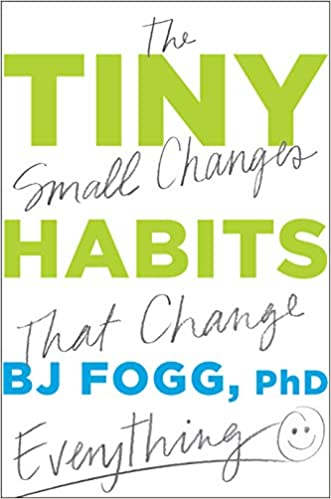
World-renowned Behavior Scientist at Stanford University and author of Tiny Habits: The Small Changes That Change Everything, Dr. BJ Fogg makes a strong case for starting small and setting small achievable goals. He writes:
We live in an aspiration-driven culture that is rooted in instant gratification. We find it difficult to enact or even accept incremental progress. Which is exactly what you need to cultivate meaningful long-term change. People get frustrated and demoralized when things don’t happen quickly. It’s natural. It’s normal. But it’s another way we’re set up to fail.
One tiny action, one small bite, might feel insignificant at first, but it allows you to gain the momentum you need to ramp up to bigger challenges and faster progress. The next thing you know, you’ve eaten the whole whale. 2
“The essence of Tiny Habits is this: Take a behavior you want, make it tiny, find where it fits naturally in your life, and nurture its growth. If you want to create long-term change, it’s best to start small.”
3. Set SMART Goals
SMART goals are Specific, Measurable, Achievable, Realistic, and Timebound. The SMART acronym outlines a strategy for achieving your goal. Your goals should be:
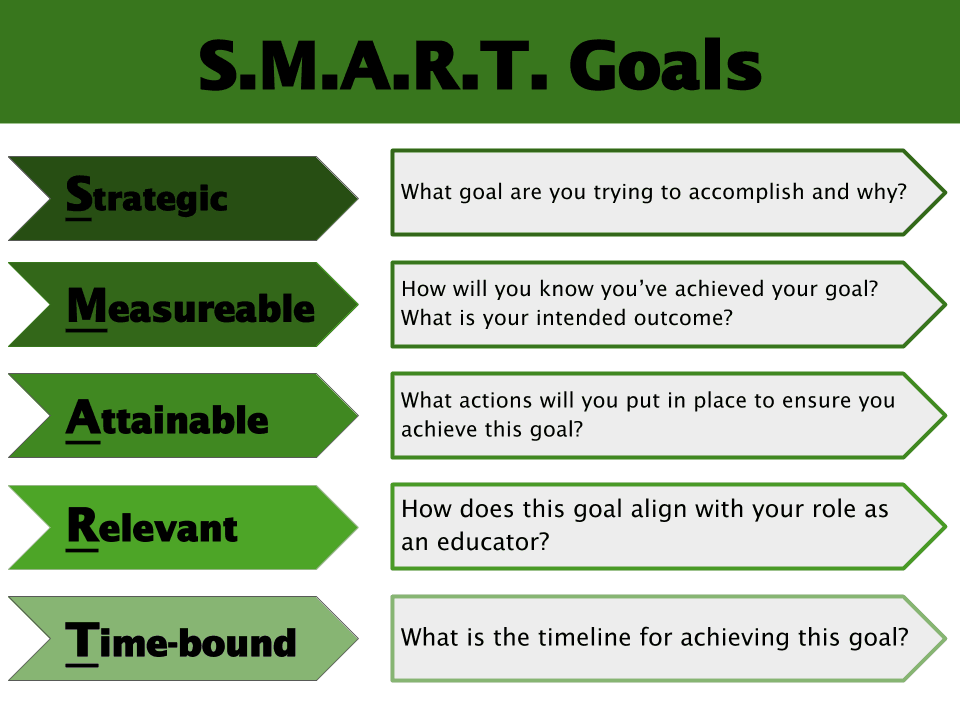
Instead of I want to read more book
SMART Goal: I read 100 books by December 31st, 2022
- Specific: I read 100 Books
- Measurable: 100 Books.
- Achievable: There are no unachievable goal, just unrealistic timelines. The 100 books goal is very achievable, you commit to reading two books per week for 50 weeks in the year. It is very doable.
- Realistic: Make sure your goals are realistic. Setting a goal to participate in an Ironman Triathlon when you find it hard to climb your condos ten story building is setting yourself up for failure.
- Time-Bound: Your goal need a time constraint as that would push you to achieve your goal. Remember, a goal is a dream with a deadline.
Experiments have shown that people with SMART goals are more likely to seize on the easiest tasks, become obsessed with finishing projects, and freeze on priorities once a goal has been set. “You get into this mindset where crossing things off your to-do list becomes more important than asking yourself if you’re doing the right things. 3
Living without clear goals is like driving in a thick fog. No matter how powerful or well-engineered your car, you drive slowly, hesitantly, making little progress on even the smoothest road. – Brian Tracy, Goals!: How to Get Everything You Want — Faster Than You Ever Thought by Brian Tracy.
4. Write down your goals
According to a study led by Professor Gail Matthews of Dominican University of California, people who wrote their goals accomplished significantly more than those who did not write their goals down. The study involved 267 participants recruited from businesses, organizations, and business
networking groups. Participants were divided into five groups: : Group 1- Unwritten
Goal; Group 2- Written Goal; Group 3- Written Goal & Action Commitments; Group 4-
Written Goal, Action Commitments to a Friend; Group 5- Written Goal, Action
Commitments & Progress Reports to a Friend.
At the end study, Matthews found that writing your goals down enhanced achieving it significantly. 4
“You will never change your life until you change something you do daily. The secret of your success is found in your daily routine.” – John C. Maxwell
5. Routinize your goals
As the Greek philosopher, Aristotle once quipped “We are what we repeatedly do, excellence then is not an act but a habit.” To increase the odds of achieving your goals this year, try to include your goals in your daily routine. For example, to listen to more audiobooks, you can listen to audiobooks when you are on the treadmill at the gym, when lifting weight or other activities like that. One of the best ways of achieving your goal is to include it as something you do on a regular basis. Read on your commute to work, listen to audiobooks in the gym, read a chapter before you sleep, listen to educational materials while driving, etc
“We are what we repeteadly do, excellence then is not an act but a habit.” – Aristotle
6. Prioritize your goals
I am often asked how I am able to read more than 100 books yearly, the answer is simple: Reading is a priority for me. I decided a long time ago to always strive to be a better version of myself daily by committing to lifelong learning. Hence my dedication to reading books daily, listening to audiobooks, listening to podcast among other activities. I challenge myself daily to read, think and relentlessly execute. A priority is something that is more important than other things and that needs to be done or dealt with first. Prioritization is the activity that arranges items or activities in order of importance relative to each other 5
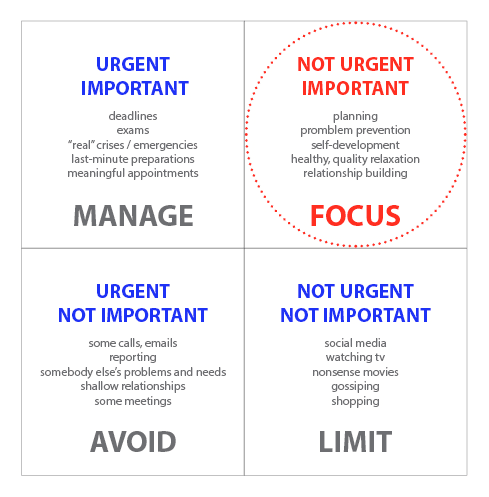
If you don’t prioritize your goals, you would use your time on things that are less important. As German poet Johann Wolfgang von Goethe once remarked “Things that matter most must never be at the mercy of things that matter least.” If you don’t prioritize your time, you would fall inside someone else’s priority.
“I have two kinds of problems, the urgent and the important. The urgent are not important, and the important are never urgent.” – Dwight D. Eisenhower
7. Set Constraints such as Public Pressure/Accountability Partners/Commitment contract
Setup constraints for achieving your goals such as having an accountability partner, writing about your goals online, and sharing for public pressure, use a commitment contract with online tools such as Stickk. A Commitment Contract is a binding agreement you sign with yourself to ensure that you follow through with your intentions—and it does this by utilizing the psychological power of loss aversion and accountability to drive behavior change. 6
One of the fastest ways to bring accountability to your life is to find an accountability partner. Accountability can come from a mentor, a peer, or, in its highest form, a coach. Whatever the case, it’s critical that you acquire an accountability relationship and give your partner license to lay out the honest truth. An accountability partner isn’t a cheerleader, although he can lift you up.
An accountability partner provides frank, objective feedback on your performance, creates an ongoing expectation for productive progress, and can provide critical brainstorming or even expertise when needed. As for me, a coach or a mentor is the best choice for an accountability partner. Although a peer or a friend can absolutely help you see things you may not see, ongoing accountability is best provided by someone to whom you agree to be truly accountable. When that’s the nature of the relationship, the best results occur. 7
An accountability partner will positively impact your productivity. They’ll keep you honest and on track. Just knowing they are waiting for your next progress report can spur you to better results. Ideally, a coach can “coach” you on how to maximize your performance over time. This is how the very best become the very best. – Gary Keller, The ONE Thing: The Surprisingly Simple Truth Behind Extraordinary Results
8. Self Compassion
When the going gets tough like they often do, don’t beat yourself up for not achieving all your goals. Have compassion for yourself, be grateful for life, and always make sure you do your best. If you try to do your best most of the time, you would be fine eventually.
Everyone’s life is different, and we are all doing our best. “Our best” today may not be “the best there is,” but it’s the best we can do today. Which is strange. And yet true. And could draw us down into helplessness and isolation if we don’t stay anchored. And the way we stay anchored is with gratitude. 8
When we’re struggling, we may reach a point of oscillating between frustrated rage and helpless despair. Solution: Choose the right time to give up, which might be now or might be never; either way, the choice puts you back in the driver’s seat. – Burnout: The Secret to Unlocking the Stress Cycle by Emily Nagoski Ph.D. & Amelia Nagoski DMA.
9. Setup Reminders
To achieve your goals this year, set up reminders such as using timers, alarm clock, goal timers, the Pomodoro Technique. The Pomodoro Technique is a time management method developed by Francesco Cirillo in the late 1980s. The technique uses a timer to break down work into intervals, traditionally 25 minutes in length, separated by short breaks. Each interval is known as a Pomodoro, from the Italian word for ‘tomato’, after the tomato-shaped kitchen timer that Cirillo used as a university student. 9
Setting reminders allows you to remember your goals, the reminder could be a picture of your goal, a frame, wallpaper, etc. The more you see and are reminded of your goals, the more probable you can achieve them.
10. Review your goals daily, weekly, monthly, and yearly.
By constantly reviewing your goals daily, weekly, monthly, and yearly, you increase your chances of achieving your goals. The more you can review your goals, the better. By reviewing your goals, you can impress your goals into your subconscious mind and with time, you would be on autopilot.
A good plan violently executed now is better than a perfect plan executed next week. – General George S. Patton.
Achieving your goals and becoming great is not an easy task as we all find out yearly. it is not enough to set those lofty goals. You need to have a strategy for executing the goals. Anyone can set a goal of speaking a foreign language, what differentiates those that follow through and those that do not is persistence, consistency, and determination. Prior Planning Prevents Poor Performance.
All the Best in your quest to get Better. Don’t Settle: Live with Passion.
I saw the Netflix miniseries first and I really loved it, I had to read the book. The Series is one of my favorite Nigerian Netflix series ever: Educative, Informative, Engaging, and Funny. Author Arese Ugwu describes the money issues most millennials can relate to – consumerism, retail therapy, fear and misconception about money, societal pressures, and the roles they play in success and failure.
The book presents the basic concepts of earning, budgeting, spending, borrowing, saving, investing as well as the behavioural and emotional aspects of money in a practical way that makes it easy to personalise.
Although Arese wrote the book with women as her primary audience, I found the lessons in the book to be very helpful for all gender. Each chapter in the book and episode in the Netflix series ends with a financial principle/nugget called Smart Money Lessons. The book shares the story of a typical Nigerian millennial that is very relatable, the roller coaster of being a Nigerian or African, black tax, lifestyle decisions that eventually affect our financial future.
The Smart Money Woman revolves around five young women and how they take control of their finances and assets, the series focuses on spending culture of women and how it ultimately affects their finances on the long run, the series also talks about how friendship, peer pressure and societal influence can affect how we spend money, It also features and teaches how women should learn to invest in their themselves amidst romantic and financial losses. 1
Arese is the Founder of smartmoneyafrica.org a personal finance platform for the African millennial. As a contributor to the Guardian newspaper, the host on Guardian TV’s new personal finance show “Your Life Your Money”, and a co-host for “Analyse This” on Ndani TV, she has helped shape the new narrative on personal finance in the media.
Rating – 9/10 (Loved the Book)
It is that time of the year again when we set New Years Resolutions. We resolve to change for the better, change or improve bad habits, achieve personal goals and make strides throughout the year. Like the snake, we strive to shed our old skin, like the caterpillar, we transform to become a butterfly. We set these goals yearly with great enthusiasm and pump at the start of the year but most of us begin to falter as the year goes by. We set goals such as losing weight, saving more money, become financially independent, maintain an healthy diet, exercise more, read more book, etc.
In Your Best Year Ever: A 5-Step Plan for Achieving Your Most Important Goals, NYT Bestselling Author and Speaker Michael Hyatt describes a five step process for setting and achieving goals. The 5 Steps are: Believe the Possibility, Complete the Past, Design your Future, Find Your Why and Make it happen.
I started experimenting with the Audiobooks Listening Challenge in 2020 and am beginning to get a hang of how to listen to more audiobooks. In 2022, I would be listening to 50 audiobooks
Strategy
- Buy one Audiobook every month which comes with my premium monthly subscription on Audible.com
- Borrow Audiobooks from the Public Library
Listening Times
- Gym Time: Listen while on the treadmill or during a weight lifting session
- Commute: Listen while in traffic or transit (Airport, waiting time).
- Early in the Morning and before sleeping.
January
- The Content Trap: A Strategist’s Guide to Digital Change by Bharat Narendra Anand
- Marketing 4.0: Moving from Traditional to Digital by Philip Kotler
- HBR’s 10 Must Reads on Leading Digital Transformation (with bonus article “How Apple Is Organized for Innovation” by Joel M. Podolny and Morten T. Hansen)
- The Future Is Faster Than You Think by Peter H. Diamandis & Steven Kotler
February
- Everybody Writes: Your Go-To Guide to Creating Ridiculously Good Content by Ann Handley
- The End of Marketing: Humanizing Your Brand in the Age of Social Media by Carlos Gil.
March
- Traffic Secrets: The Underground Playbook for Filling Your Websites and Funnels with Your Dream Customers by Russell Brunson
- They Ask You Answer: A Revolutionary Approach to Inbound Sales, Content Marketing, and Today’s Digital Consumer by Marcus Sheridan
- Life 3.0: Being Human in the Age of Artificial Intelligence by Teg Maxmark
- The 1-Page Marketing Plan: Get New Customers, Make More Money, And Stand Out From The Crowd,
April
I started experimenting with the Magazine reading challenge in 2021 and was able to read 28 Magazines in 2021. I am aiming to be more consistent in 2022.
Goal: Read 50 digital magazines by December 31st, 2022.
Strategy: Borrow from the public library through platforms such as RB Digital and Flipster.
Reading Time: Weekends (1-2 Magazine per week).
January
- Adweek | Outlook 2022 | Consumer Electronics Show 2022 | Conversational Commerce |
- Forbes Africa December 2021/January 2022 – African of the Year (President Nana Akuffo-Addo)
- Entrepreneur January 2022 – Jimmy Fallon | Franchise 500 | Don’t Cling Too Tightly to Your Goals.
February
- Fast Company Winter Issue | The Secrets of the Most Productive | Next Big Thing in Tech List 2021
- Adweek Superbowl Edition | Brand Bundling
March
- WIRED UK March / April 2022 | Amazon’s Data Fail | CryptoPunks | Alvy Ray Smith – Pixar
- Entrepreneur Magazine March 2022 | Jessica Simpson | Fastest growing franchises | ON running shoe
- Inc. Mar./April 2022 | Carbon Health – Eren Bali | Tope Awotana | Inc.Regionals: The fastest-growing companies coast to coast | Bethenny Frankel feature | The Power of Two | A Killing in Cannabis – Tushar Atre
April
- Wired April 2022 – Joel Kaplan, OpenAI CoPilot
May
June
July
August
September
- Entrepreneur magazine | The Next Generation of Industry Changers | Steve Case – The Rise of the Rest |

